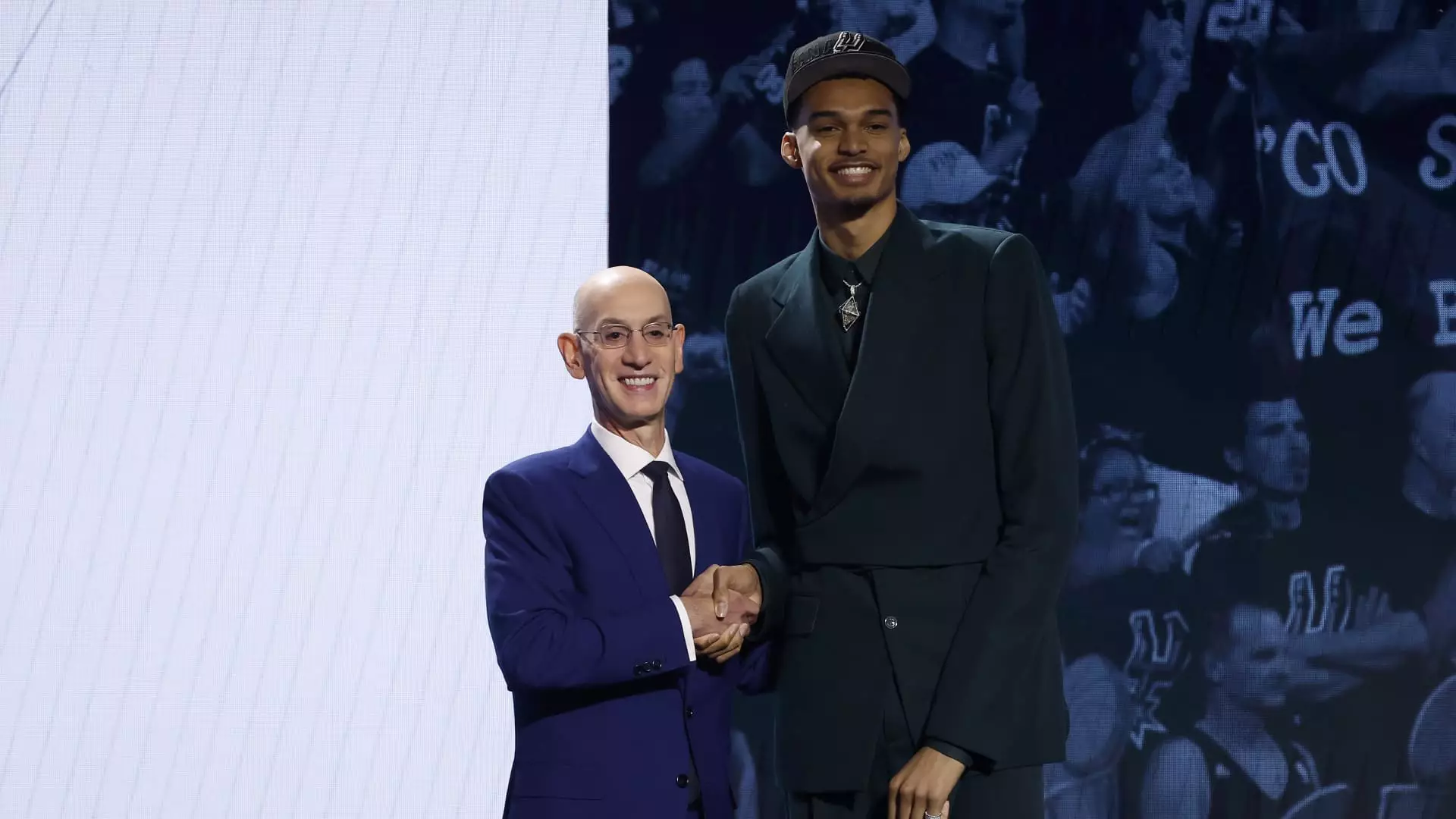Warner Bros. Discovery recently made a bold move by notifying the National Basketball Association (NBA) of its intention to exercise its matching rights for a package of games earmarked for another company. This strategic decision comes as the entertainment giant locks horns with other industry players in a bid to secure exclusive broadcasting rights for NBA games. With the negotiations heating up, it is essential to delve deeper into the implications of Warner Bros. Discovery’s maneuver and the potential outcomes for all parties involved.
The matching rights provision, which Warner Bros. Discovery acquired as part of its previous deal with the NBA, allows the company to match payment for any games that aired on TNT in the current agreement. This provision serves as a crucial component of the existing contract, safeguarding the rights that Warner Bros. Discovery has invested in over the years. By leveraging these matching rights, the company aims to ensure that fans continue to enjoy unparalleled coverage, live game productions, iconic studio shows, and talent for many more years to come.
One of the key challenges facing both the NBA and Warner Bros. Discovery is the extension of rights to an all-streaming package, especially in light of Amazon Prime Video’s lucrative offer. While Warner Bros. Discovery also owns a streaming service, Max, the sheer volume of Amazon Prime Video’s global customers presents a compelling case for the league to consider. With Amazon’s robust market capitalization and established presence in the streaming industry, the NBA faces a tough decision in determining the optimal platform for showcasing its games.
The contrasting market valuations of Warner Bros. Discovery and Amazon further complicate the negotiations, with the former’s valuation standing at approximately $20 billion compared to Amazon’s staggering $2 trillion. CEO David Zaslav’s explicit interest in exploring mergers or partnerships raises questions about Warner Bros. Discovery’s future trajectory, adding another layer of uncertainty to the bargaining table. In contrast, Disney and Comcast’s NBCUniversal boast market valuations exceeding $150 billion, underscoring the financial disparity between the potential broadcast partners.
Should the NBA reject Warner Bros. Discovery’s right to match the Amazon package, the ensuing legal implications remain unclear. While litigation or settlement discussions could be on the horizon, the league must navigate these waters carefully to maintain a sense of stability with its broadcast partners. Crafting a fourth package of games appears unlikely, as existing deals with Disney, Comcast, and Amazon have already been solidified, limiting the scope for additional agreements.
The financial dynamics of the broadcasting deals further complicate the negotiations, with Disney slated to pay $2.6 billion per year, NBCUniversal around $2.5 billion per year, and Amazon’s deal valued at $1.8 billion per year. Warner Bros. Discovery’s strategic targeting of the Amazon package stems from the relatively lower price tag, signaling the company’s savvy financial maneuvering in the competitive landscape of broadcasting rights.
Amidst the flurry of negotiations and strategic maneuvers, the NBA remains mindful of consumer confusion and the proliferation of streaming services. By striking a delicate balance between maximizing revenue streams and ensuring fan accessibility, the league must weigh the trade-offs involved in selecting broadcasting partners. Limiting the number of services required for fans to subscribe to while maximizing revenue potential serves as a delicate tightrope for the NBA to navigate in the evolving media landscape.
Warner Bros. Discovery’s decision to exercise its matching rights in the NBA deal represents a pivotal moment in the ongoing negotiations for exclusive broadcasting rights. As the entertainment giant grapples with industry titans like Amazon, Disney, and Comcast, the outcome of these negotiations will not only shape the future of NBA broadcasting but also set a precedent for lucrative media deals in the sports entertainment industry. The interplay between financial considerations, legal implications, and consumer impact underscores the complexities involved in securing coveted broadcasting rights and illuminates the high-stakes nature of the negotiations at hand.


Leave a Reply